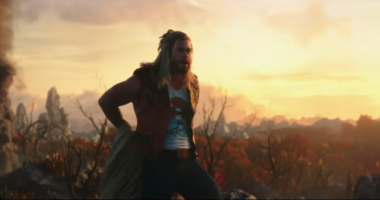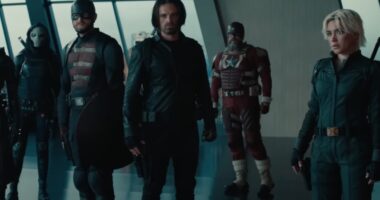Cumulatively, this shows Universal Pictures made a shrewd and potentially game-changing decision when it decided to break Schwartz’s stage musical phenomenon into two films rather than one. Artistically, and certainly critically, the move can be challenged as commercial or cynical. In my review of Wicked: For Good, I found the second movie suffered significantly from the divide since Act Two of the stage show is not nearly as compelling as Act One. Asking to stand on its own without the best songs, character moments, or larger narrative context did it no favors. Yet one thing critics need to always keep in mind is they are not the target audience for an all-ages spectacle like this.
And as demonstrated by the “A” CinemaScore, Wicked: For Good is working with glowing word-of-mouth among its intended target audience of families and folks who simply love the music and the characters, and want to see them realized onscreen by exceptional talent like Erivo and Grande, not to mention production designer Nathan Crowley and costume designer Paul Tazewell. Critics groups can quibble all they like about the narrative effectiveness of, say, the Tin Man’s surprising origin story in the sequel, but for young theater kids who feel it in their bones when Elphie and Glinda testify they’ve been changed for the better because “I knew you,” it matters not a single yellow brick.
Meanwhile Universal has potentially created a innovative solution to one of the ongoing issues of adapting musicals written for the stage: condensing what is often three hours of material divided into two acts into a conventional 120-minute, three-act structure. As it turns out, you can simply expand both acts for the stage and double the hype and event-ization of the movies’ release.
Admittedly it remains to be seen if such a maneuver would work on less popular musicals like, say, Dear Evan Hansen or Jon M. Chu’s glorious adaptation of Lin-Manuel Miranda’s In the Heights over at Warner Bros. Indeed, something like In the Heights demands to be a cohesive story and would almost certainly not benefit narratively from a one-year gap.
However, larger mega musical favorites like Les Misérables, The Phantom of the Opera, and Hamilton end on major mic drops like Wicked’s “Defying Gravity.” Furthermore, the latter two have major time jumps between acts like Wicked, which could justify splitting the material in two. Granted, POTO and Les Mis have already been adapted into films, but Andrew Lloyd Webber has made no secret he wants another bite at the apple with Phantom, and Hamilton remains a golden goose waiting for a more traditional film narrative adaptation. Plus, the 2012 adaptation of Les Mis might have been a huge hit, but the unevenness of the casting has left some fans eager to see another swing with vocal talent more comparable to Erivo and Grande in Wicked in the roles of Valjean and Javert. That material also has plenty of time jumps, if you want to change where the dividing line is between films…
These and perhaps a handful of others that can keep tourists coming back to Broadway year after year might benefit from a similar hype machine to Wicked that franchising the material naturally invites. Studios and exhibitors who bring those movies to theatrical audiences might even call such a thing wonder-ful.

![A Gilded Age Mystery Is Afoot in a Sneak Peek of 'The Artist' [Exclusive]](https://citigist.com/wp-content/uploads/2025/11/A-Gilded-Age-Mystery-Is-Afoot-in-a-Sneak-Peek-200x110.jpg)







